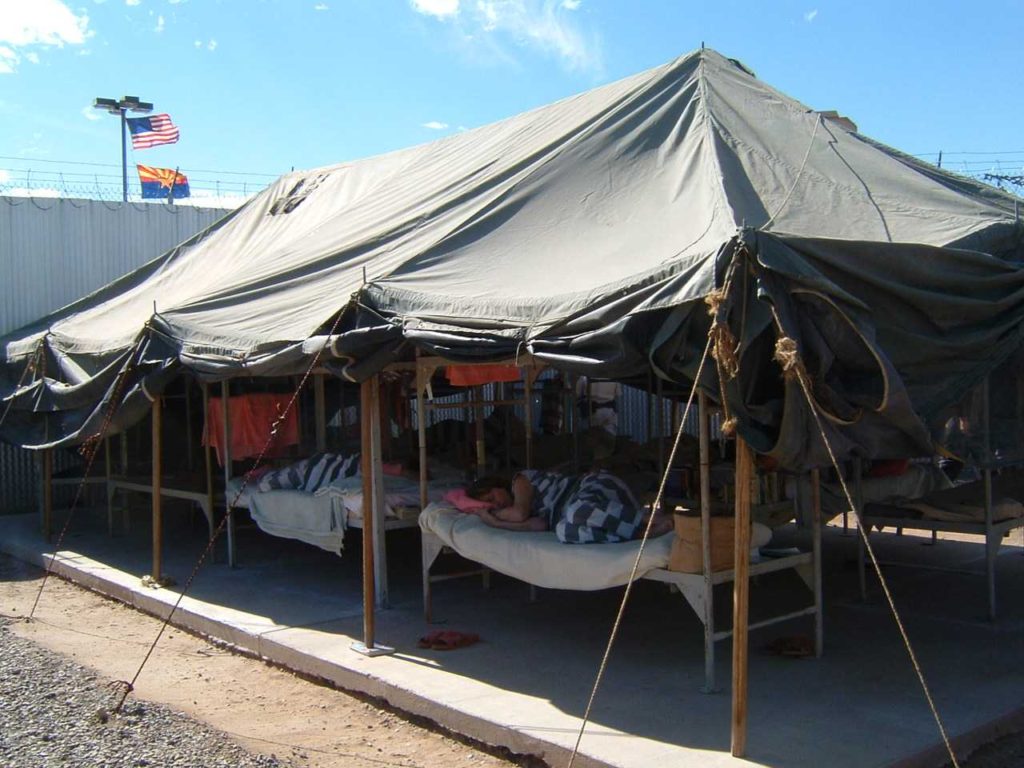In San Francisco, thousands of homeless people find shelter on street corners wrapped in sleeping bags or shielded by the thin canvas of tents. Tent cities have popped up around the Bay Area and around the country, a response to an economy that has abandoned poor and homeless people. Rather than offer people housing and respite from the inhospitable and unlivable conditions of the streets, the city has responded with brutal encampment sweeps, exorbitant citations, and incarceration, making the crisis nearly intractable.
Hundreds of miles to the south, hundreds of inmates are issued striped jumpsuits and sent out to labor under the hot Arizona sun before returning to sleep in canvas tents that can reach 122 degrees Fahrenheit. This prison camp, known as Tent City, is the brainchild of former Maricopa County sheriff, Joe Arpaio, a man famous for his inventive and cruel punishments who himself compared the Tent City to a concentration camp. In an attempt to humiliate residents, Tent City issues pink underwear and towels, now emblematic of the camp. On Thursdays, inmates are tasked with burying the bodies of poor people in the county cemetery.
These inmates are sent to Tent City as punishment for various nonviolent crimes, from public intoxication to drug possession to car theft, many of which are crimes related to lack of access to mental health treatment, housing, or rehabilitation (read: poverty). Some are also there because they are undocumented immigrants. In fact, at one point Arapaio led a forced march of 200 immigrants from a detainment center to Tent City in a publicity stunt also bent on humiliation.
This is collectively how we have chosen to respond to the challenges posed by disparity and inequality in this country: Poor people are backed into impossible corners and then punished with homelessness, incarceration, deportation, or all three. Society has made peace with the idea that certain human beings should live outdoors in intolerable conditions, and without basic dignity, be it comfortable underwear or access to toilets. If we are truly to end homelessness, we must address the structural violence that puts people on the streets and leads to mass incarceration. We cannot be passive when we see our neighbors losing their homes, being dragged off by ICE agents, or being sentenced to time in deplorable prisons.
Several months ago, thanks to significant public pressure, Maricopa’s new sheriff announced that the prison camp would be closing, but prisoners at Tent City say little movement has been made toward actually shutting down operations. As the criminal justice system is forced to acknowledge that tents are not adequate shelter for inmates, we must continue to work toward a San Francisco that affirms that homeless people deserve safe and stable housing, just as all people do. Being forced to urinate in public because you have no access to a toilet; walking around feeling filthy all week because you have nowhere to shower, being caught making love to your partner because you have no door to lock, these are just a few of the many indignities homeless San Franciscans must endure on a daily basis, and it should be considered public humiliation.


